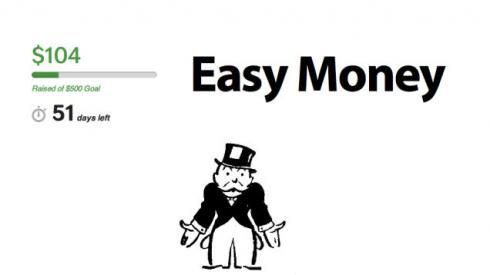Financing Your Short Film - Three Ways to Bypass Industry Gatekeepers
By Thomas Verdi | 06-Feb-2017

This is a blatant post about why we want you to use the new short film funding platform called The Film Fund to get around industry gatekeepers. It's also a pretty dope write-up, so read on if you're interested in the film industry and getting your flicks made.
You're probably not J.J. Abrams, or Steven Spielberg, or Quentin Tarantino. With their industry reputations, "bankable" status, and proven track records, these guys can make a few calls and get their productions green-lit. Okay, it's probably a little more complicated than that, but still.
I really can’t say for sure, as, at least at this point in my career, I've been blocked by those known in the industry as "gatekeepers." And so have my friends.
While I know this fact to be true, I didn't realize there was actually an industry term for those figures who hold all the production power - the studios, the prominent festivals, whatever. The term "gatekeeper" made its way into my brain straight from several frustrated filmmakers who had emailed me back about The Film Fund - our upcoming alternative to using crowdfunding, big screenwriting contests, or grant applications to fund budding short film projects.
So because the word "gatekeeper" has been lingering in my head for a while now, here are three reasons why we think it's so easy to get around those people. They want you to think they hold all the power. They don't.
1. Think about alternative funding options.
It’s not that crowdfunding doesn’t work. But it usually only works under carefully planned, time-intensive, crowdsourced circumstances. Zach Braff was able to raise over three million dollars for his film is because he’s Zach Braff—he has already spent the time cultivating a following and building a brand for himself. The everyman filmmaker likely doesn’t have over a million Instagram followers.
And of the films on Kickstarter that do get financed - we’re talking about narrative films here - only 14.7% of them are short films, and 41% of these short film campaigns fail. That doesn’t leave a lot of room for your little project. To get around the gatekeepers (for now), think of how to add other options into your crowdfunding campaign. All of your funding doesn’t have to come from crowdfunding.
2. Start from the ground up. From below what you think the ground even is. Really.
You do not need the big players to make a successful short film - at least not at first. In all probability, you're not going to be able to get a job as a security guard on a film lot and suddenly have the opportunity to pitch your attack-of-the-alien-killer-crabs short film concept to Peter Jackson and have him write you a check to cover the budget. That would be pretty sick, though.
You need to make a small project to get you in front of some people who matter, some influencers, and then maybe they'll be interested in developing future projects with you.
Wrestle together $500 from your uncle - or maybe even up to $10,000 with The Film Fund - make an awesome short, and submit it to small festivals. If it's any good, people will notice.
3. Be lean.
Short films do not make money. They serve as calling cards, quick references to show what a filmmaker is all about. While there are always exceptions, it doesn't make sense to me to slave over a short film script with no likelihood that it will be purchased or produced by anyone other than the original writer - or production team.
There are tons of short writing competitions and grants out there that require a sizeable amount of time and effort, and they will gladly take your hard-earned dough - as much as $125 in some cases - for one entry. We think you should approach filmmaking with the same mentality as many successful startup companies: be lean and test out an MVP, a minimum viable product.
With The Film Fund, you can go in with nothing more than a simple idea, and if our judges think it's got moxie, then you can develop it with the necessary budget.
If not, there’s really no time wasted. You wrote one sentence, and you coughed up a few minutes and twenty-five clams. That’s like a decent steak dinner - not hours on hours and $125.
(You might even get some free entries if you spread the word about The Film Fund - more on this another time).
So to avoid having an aneurysm at the mighty filmmaking gates, try something a lot less stressful, like The Film Fund.
Comments
